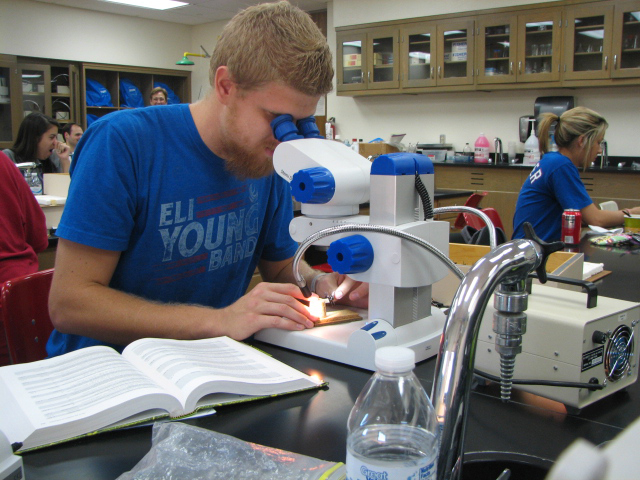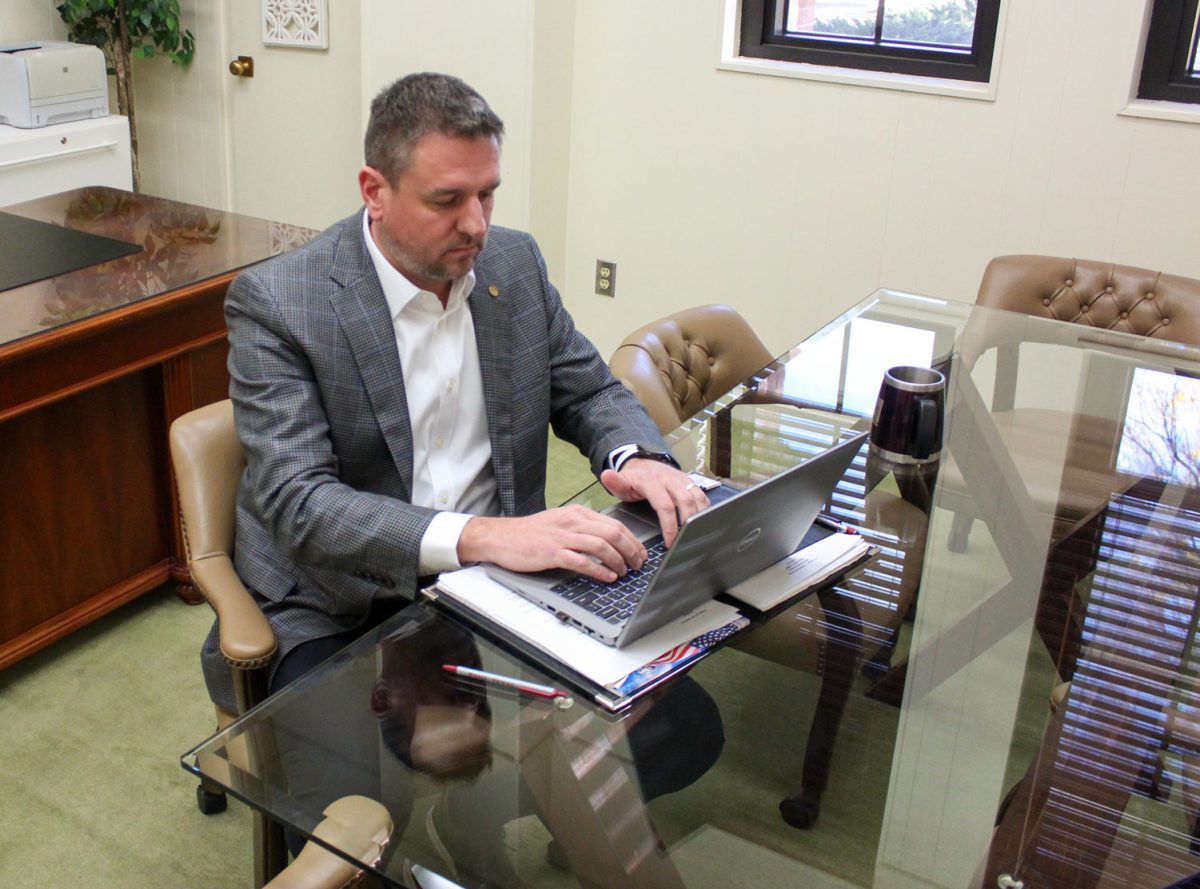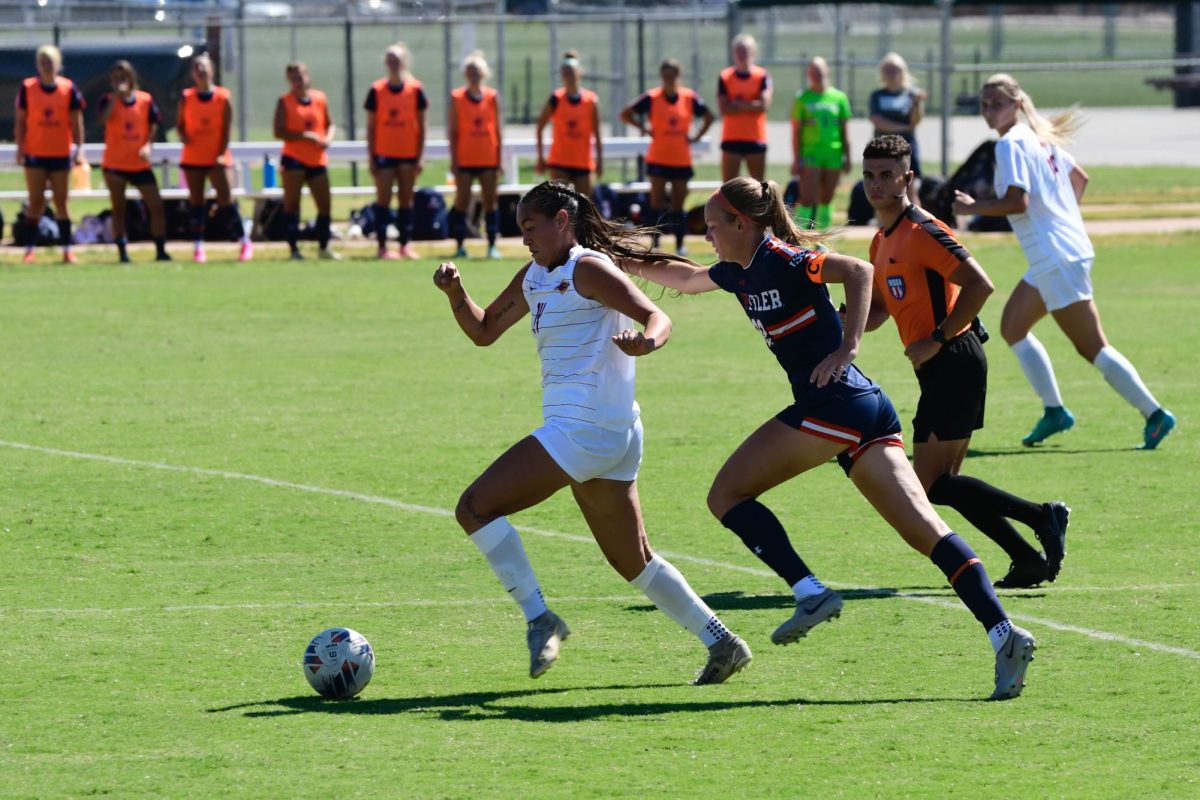
Since a group of six professors started the undergraduate research program in 2004, some 90 students have had the opportunity to produce publishable research studies. And in the nine years since, the program — student participants and budget — continues to grow.
“Research has been going on here for ever,” Director of Undergraduate Research Magaly Rincón-Zachary said. “There wasn’t a formal way for students and faculty to come together to do to research. We always wanted to include students and professors from other departments.”
Wade Courtney, a senior in mechanical engineering and UGROW participant, said, “I fully endorsed the idea of UGROW, and I am glad that I had a chance to be a part of the experience.”
Rincón-Zachary, a professor of biology, said $4,000 became available to start the collaborative program in 2005 for five students, selected from 13 applicants. In 2012, program administrators accepted 18 students into the program, too many for faculty to handle. A year later, as the summer program was adding a new component for student researching during the fall and spring semesters, program administrators capped enrollment for the summer program at 16 students from 40 applicants, keeping a low faculty-to-student ratio.
And through the years, collaboration remained the focus of the program. According to The Wichitan article in 2012 “UGROW aids students, faculty in campus-wide research projects” by Chris Collins, Zach Evett, a mechanical engineering student, helped the theater department develop mechanical puppets for the show Bandersnatch.
“I feel like this has been one of the best opportunities I have ever had. I wish everyone got to do that,” Evett said. “We’re supposed to allow students to see a whole lot of things. They want us to have a very nice education here. I feel like I can really diversify myself.”
Rincón-Zachary said, “The students develop their minds, become more assertive. By doing research, they can put their creativity to work. When several minds of different backgrounds come together, there are more opportunities and advantages to solve a problem.”
John Eakin,a senior in biology and UGROW participant, said, “As someone who plans to continue on with schooling after graduation, this program has prepared me not only for the type of environment I will find myself in, but also the thought processes and creative mindsets that I will need in order to be successful at the next level.”
Students in the four and one-half week program receive personal training from mentors, training students to conduct professional-level research ready for publication. Students have had their work published or presented at the Texas Academy of Science, the Annual Meeting of Planned Biology and American Chemistry Society. Others have gone a step further and presented at a geo-science conference in Denver and a computer science conference in Hawaii.
“I highly recommend UGROW for a fun and learning experience in undergraduate research. It really gives a better understanding of how research really is,” Angelica Torres, a sophomore in biology and UGROW participant, said.
And noting that faculty, staff and students need to continue to promote research within the campus, Rincón-Zachary, who was promoted to her position overseeing undergraduate student research in January of 2013, said in addition to benefiting the students, the program benefits the university as well.
“It’s a great recruiting tool,” she said. And, “the students will eventually graduate from MSU, remember where they came from and possibly become contributing alumni.”
While UGROW has more than tripled in size and now has a budget of $60,000 each summer, funding meetings, labs, scholarships, faculty pay and materials from private donations. It is now a five and one-half week program, Ricón-Zachary said she hopes it will continue to grow.
“Undergraduate research will be a common element in all undergrad careers,” she said. “I also see it being a part of MSU culture because it is a high-impact learning tool.”
Algerr Remy, a junior in biology and UGROW participant, said the expansion will help future participants.
“Although we were never able to actually answer our question during the four and a half weeks of UGROW, we did make significant headway,” Remy said.
The next step for UGROW to expand would be getting more professors who can take part in the research studies over summer, which requires additional funding. The professors went from 2005 to 2008 without getting paid.
“I look forward to UGROW every year. Being involved with students who are truly interested in discovering and learning is the single most-satisfying endeavor with which I have been involved at Midwestern State University,” Rincón-Zachary, who has been at Midwestern since 1992, said.
Enhancing Undergraduate Research Endeavors and Creative Activity students will be presenting research Nov. 22, in the Clark Student Center from 9 a.m. to 5 p.m.












